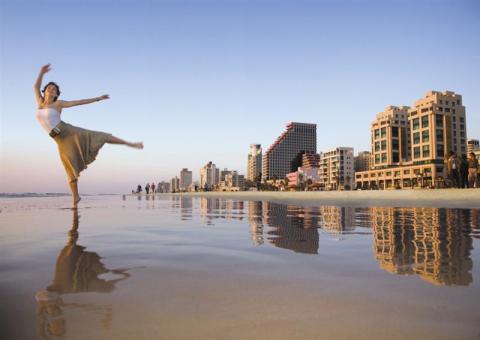Secular, Israeli and proud to live in a bubble
Our secular tradition is the one on which the state was founded – democracy, equality, freedom and rejection of religious coercion and persecution. This tradition is a deep root that goes way down to humanity's primordial desire for individuality, free thought and expression, and creativity. It is also universal; most people in the democratic world "hold these truths to be self-evident."
Those who envisioned this country and founded it, including my parents' generation who came as pioneers and fought for Israel's independence – did so not to have just any Jewish state, but one based on these values. They forged a unique way of life and created the traditions, customs and folklore that form the fabric of Israeli life. Other (religious) communities who followed have their own customs and traditions. Theirs, too, are valid, but no more or less so than ours.
Commentators and analysts frequently talk about "the leftist elites" and "the Tel Aviv bubble" and scorn those living this way as "cut off" and not understanding "the Israeli public."
Why is supporting freedom and equality regarded as such? It's okay to force us to live with no public transportation and other services our taxes pay for on Saturdays and Jewish holidays, in the observance of all kinds of customs and rituals we don't believe in, but the moment we object to this, we're condemned for being cut off and lacking in tradition and roots.
The commentators criticized the left and center for failing to accept and embrace the Mizrahi communities' traditions and customs. They also said so-called traditional communities and most of the public rejected the left and center parties for their universal values, which don't place Israel and Judaism in the highest priority. But as far as I can see, the parties these voters supported reflect very little of the "Jewish tradition" they speak of. Where in the policies of the right-wing parties are the social justice, equality and mutual help that Judaism calls for?
Funny, I never thought of myself as part of an elite – more a kibbutznik (as a child) who moved to a moshav, a new immigrants town in the south, and ultimately to a rather provincial city. Most Tel Avivians I know – both Mizrahi and Ashkenazi – come from various parts of Israel or abroad. We're certainly not as "elite" as Benjamin Netanyahu, Moshe Yaalon and Yuval Steinitz, of the Likud party. Yet we are branded as "elite," which is somehow a bad thing, while they get to be the heroes of the masses.
I wholeheartedly agree that we should respect other people's – especially the majority's – life choices and votes. But I cannot respect those whose vote was motivated by racism and hatred, like those who acted upon Netanyahu's call, because "the Arabs are thronging in droves to the polls." Just imagine the outcry had an American or European candidate spurred voters with cries of "the Jews are thronging en masse to the polls."
It is absolutely clear by now to both right and left, and to the rest of the world, that Netanyahu's policy of confrontation with the United States, expanding West Bank settlements and spurning the peace process will lead Israel to even further international isolation. But we in the City-State of Tel Aviv have been saying that all along, to anyone who would (or mostly wouldn't) listen. We could see what was going on both here and abroad, while the rest of "the public" couldn't.
Michal Yudelman O'Dwyer

